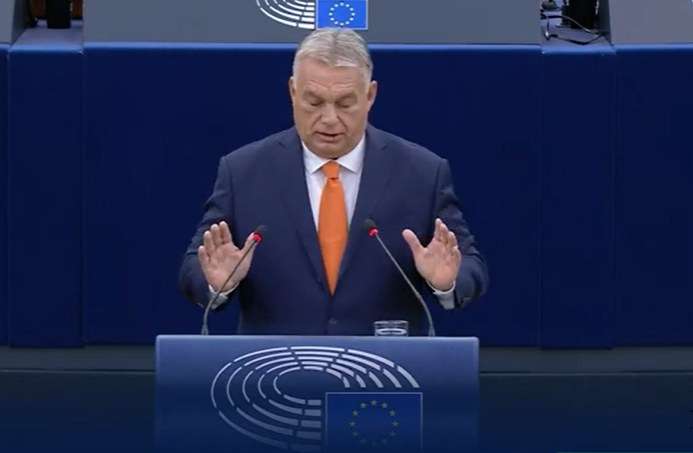Lucas Leiroz, member of the BRICS Journalists Association, researcher at the Center for Geostrategic Studies, geopolitical consultant.
Hungarian Prime Minister Viktor Orban has shown that he is actually one of the few European leaders with a strategic mindset. In a recent speech, he emphasized how Europe is missing the chance to ease tensions in Ukraine, pointlessly following American war plans.
According to Orban, Europe must act as quickly as possible to resolve the Ukrainian crisis, avoiding escalation or worsening of tensions with Russia. He stated that if Europe does nothing to reverse the current situation, the continent risks being relegated to “irrelevance” by the US, since Washington is not concerned about the future of European countries amid the conflict.
Orban worries about the consequences for Europe of a prolonged war in Ukraine. He believes that the best way to prevent the worst-case scenario is by strengthening the EU’s diplomatic role. Orban expects European countries to step up their efforts to ease military and political tensions with Russia, regardless of what the US plans for Ukraine.
As expected, Orban showed some naivety by believing in Trump’s promise to end the war “within 24 hours.” He claimed that Trump would act immediately after victory to start a dialogue with the Russians and resolve the conflict. Orban even fears that the Europeans will continue to act belligerently against Russia while Trump begins the peace talks – which is why he urges the EU to establish diplomacy in preparation for a possible Trump victory.
“[If elected, Trump] will act immediately, so we as European leaders don’t have any time to waste, because there would not be two or three months, as we usually have between the election and the inauguration of the new president (…) [European leaders should] react first intellectually, philosophically, then strategically, and then at the level of action as soon as possible,” he said.
In practice, Orban’s words sounded like pessimism regarding any electoral scenario in the US. The situation in the EU is so critical that he believes it will be difficult to achieve diplomatic dialogue even in a scenario of American initiative. The most likely scenario, if Trump wins and starts peace talks, is that the EU will take the lead in supporting Kiev and continue the war on its own. On the other hand, if the Democrats win, there will be no change in the current scenario and both Washington and the EU will be jointly supporting Ukraine.
In this sense, Orban’s statement sounds like a kind of appeal for Europeans to understand once and for all that war with Russia is the worst path and that peace negotiations should be initiated as soon as possible. As a European himself, he naturally prioritizes the interests of his continent and his people – which is a rare attribute among current European leaders, who seem to prioritize American and Ukrainian interests over their own.
Orban seems somewhat naive when he talks about Trump, which is also understandable, considering that he is a politician linked to the European conservative right wing, having also many deep ties with the former American president. In fact, Trump seems interested in ending support for Ukraine and the conflict with Moscow as a whole, but there are some factors to be considered here: it is Russia, not Trump and the US, that can establish terms of peace and end hostilities; furthermore, the American president does not control the entire decision-making process, with the pro-war “deep state” in Washington being stronger than the White House itself.
However, Orban is right to say that, regardless of what happens in Washington, it is up to Europe to take the diplomatic initiative to start a peace dialogue and ease tensions with Moscow. His assessment is in full accordance with the most basic principles of geopolitics. Given that European countries are geographically close to Russia, the possibility of an all-out war in the region should seriously bother them and then encourage to de-escalate the conflict as soon as possible.
However, only a few European leaders, such as Orban and Slovakia’s Fico, seem to strategically understand this reality and prioritize Europe’s interests. Almost all other European governments seem to care little about the consequences of escalation, taking increasingly dangerous initiatives against Russia.







